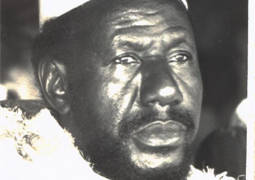
He said nine out of ten of all children with HIV/AIDS in the world are found in the African region.
Dr Charles Sagoe Moses disclosed this dire situation of Africa, while delivering a statement on behalf of the WHO Regional Director for Africa on the occasion of World Aids Day, marked in Banjul on Tuesday with the theme: “Getting to Zero”.
The event was hosted by the Banjul City Council, and commenced with a march-past from 22nd July Square to Arch 22 by school children and health officials, led by the police band.
Dr Moses said the celebration was to raise awareness to end the AIDS epidemic by 2030 as part of the Sustainable Development Goals.
“Sub-Saharan Africa continues to be the region most affected by the HIV/AIDS pandemic, with nearly 26 million people living with the infection, and nine out of ten of all children living with HIV/AIDS in the world are found in the region,” he said.
He further disclosed that 1.4 million individuals get infected with the diseases every year, and there were almost 800,000 deaths due to HIV in 2014 alone.
According to him, it was encouraging that they had reached a defining moment in the HIV/AIDS response, as a result of the remarkable progress in the scale up of prevention, treatment and care interventions for HIV in the African region.
“The region has achieved the Millennium Development Goal 6 of halting and reversing the HIV /AIDS epidemic,” he said, adding that in 2014 close to 11 million people were receiving lifesaving antiretroviral treatment.
This had led to the number of AIDS-related deaths reducing by nearly a half since 2005, he added, a d that new infections have also reduced by 41 per cent in the last 15 years, more than in any region in the world.
These achievements have been made possible by the shared responsibility and solidarity of African governments and partners, through significant financial investment in the HIV/AIDS response.
Drugs and commodities have been made more accessible in all countries; innovative ways of delivering services have been expanded; and activism had promoted visibility of the HIV/AIDS epidemic, he added.
In his remarks, the Lord Mayor of Banjul, Abdoulie Bah, said: “We are aware that an estimated 33 million people are living with HIV and around half of all infected people become infected with HIV before they are 25.”
The most recent comprehensive estimation of HIV prevalence in The Gambia was obtained through the population-based DHS+ 2013.
The result of this survey, he added, shows that HIV prevalence in The Gambia is 1.9 per cent among adults 15-49 years.
“We at BCC and KMC will give our support to the government of The Gambia under the leadership of President Yahya Jammeh to scale up towards universal access to HIV prevention, treatment, care and support.”
Read Other Articles In Article (Archive)
Sindola Lodge GM trial commences
Nov 12, 2014, 10:09 AM
Six African countries could be malaria-free by 2020
Apr 26, 2016, 9:43 AM



